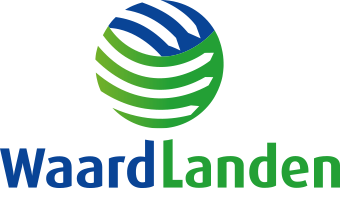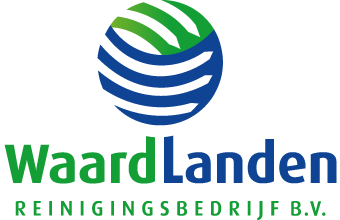
- Intro text: Discover smart tips to celebrate Sinterklaas consciously and inexpensively this year. From giving experiences to sustainable wrapping: make Sinterklaas a party full of fun, without unnecessary packaging.
St Nicholas is coming again. A cosy time with presents. Unfortunately, this often also results in a lot of unnecessary packaging. We share some smart tips to celebrate Saint Nicholas more consciously and economically this year.
Tips for a smart Christmas season
By swapping smartly, reusing and thinking more sustainably, you will not only make Saint Nicholas more economical, but also better for the environment. Join in this year and make conscious choices that you will enjoy for a long time to come.
- Experiences instead of stuffThis year, give experiences as a gift, such as a fun day out. These are memories children will enjoy for years to come, without any extra stuff in the house.
- Make your own presents Still prefer to give something tangible? Handmade gifts are personal and valuable. Think about making something delicious or a creative project. This is not only cheaper, but also much more sustainable. You avoid packaging waste and save on the raw materials needed for new products. In this way, you are helping to create a better environment.
- Swapping toys instead of buying them Why buy new toys when you can exchange unused toys? Many homes still have perfectly good toys that are no longer being played with. Find a toy swap market near you, and swap for 'new' toys at no extra cost. This way, you will not only surprise the children, but also save money.
- Second-hand toys Not only swap markets, but also thrift shops, gift shops and online platforms, such as Marktplaats, offer plenty of choice in second-hand toys. You can often find toys there in excellent condition for a small fraction of the price. It's a win-win situation: less production of new stuff and more space in the wallet.
- Sustainable packing Wrapping paper often creates a lot of waste. Therefore, opt for more sustainable options such as a reusable wrapping sheet. This way, you can wrap your gifts sustainably time after time - without extra waste. You can also use a nice tea towel or a box that you reuse.
- Make a wish list Together with the children, make a list of what they really want. This will prevent premature purchases and allow for more targeted searching, so you spend less money.
- Buy less, but more consciously This year, choose quality over quantity. Go for a few valuable, durable items that will last for years.

- Intro text: Did you know that more than 40% of our residual waste consists of food waste, fruit, vegetable and garden waste? Good news! If you collect that GFT separately, much less residual waste remains. Good for the environment and your wallet. Discover useful tips and make a difference!

- Intro text: Autumn has begun, and that means we spend more time indoors. This is a good time to make your home cosier. Are you thinking about freshening up with paint or wallpaper? Both options have their pros and cons. But which choice is best for the environment and your home?
Autumn has begun, and that means we spend more time indoors. This is a good time to make your home cosier. Are you thinking about freshening up with paint or wallpaper? Both options have their pros and cons. But which choice is best for the environment and your home?
Paint and the environment
Paint is easy and quick to apply. Only, many paints are full of substances that are bad for the environment and your health. Most paint is made from oil and other materials that are not sustainable. This is not good for nature. Fortunately, there are eco-friendly paints, such as water-based or natural paints. These contain fewer harmful substances, are better for the environment and provide healthier air in your home. Keep in mind that even water-based paint often contains microplastics. These are small plastic particles that are harmful to the environment and animals.
Durable wallpaper
Wallpaper is a popular choice because there are many different colours and patterns. Yet not all wallpaper is equally eco-friendly. Some types are made from materials that are not as good for the environment. Fortunately, there are also more sustainable options, such as wallpaper made from recycled paper or natural fibres. This wallpaper often lasts longer and is better for the environment. Non-woven wallpaper is a super eco-friendly choice. It is made of materials that do not harm nature and it lasts for a very long time. Therefore, it is also a sustainable option.
What do you do with leftovers?
Do you have wallpaper or paint left over after doing odd jobs? Don't just throw it away. You can hand in old paint cans free of charge using your environmental card at the collection point for small chemical waste on the environmental street. Throw leftover wallpaper in the rubbish. Wallpaper does not belong in the used paper, because it contains glue and sometimes PVC (a type of harmful plastic) or other plastics. This way, you ensure that waste and raw materials are disposed of properly and help create a cleaner environment.

- Intro text: For many, reading is the best time to relax. But have you ever considered which option is better for the environment: a paper book or an e-book?
For many, reading is the best time to relax. But have you ever considered which option is better for the environment: a paper book or an e-book?
The benefits of e-books
E-books are more popular than ever. An e-reader can store hundreds of books and takes up less space. Yet producing an e-reader requires a lot of energy and raw materials, which can be harmful to the environment. Fortunately, this offsets if you read at least 25 e-books in 5 years; then the impact is lower than if you bought the same amount of paper books.
Paper books: Still a favourite
Paper books remain the favourite. But their production is not without consequences. Trees are felled, and making paper consumes a lot of energy and causes CO2 emissions. For 120 paper books, this amounts to 153 kilograms of CO2.
Which is more sustainable?
According to experts, an e-reader is more environmentally friendly if you read enough books on it. But if you only read books occasionally, or buy second-hand books, a paper book can be just as sustainable.
In short, both options have advantages and disadvantages. So the next time you pick up a book, consider which is the best choice for you and for the environment.

- Intro text: Products that you store properly stay good for longer, especially if you store them in the freezer. Avoid waste and find out how to make the best use of your freezer with handy storage tips.
Read more: The best storage tips for your freezer against wastage

- Intro text: Wondering how to cook a delicious dish at home waste-free? Our environment coach Nelleke takes you to star restaurant De Gieser Wildeman, where René Tichelaar shows you how to put a delicious dish on the table with an ingredient that most people throw away.
Read more: Learn waste-free cooking with celebrity chef René Tichelaar
- Intro text: What do you do with medicines you no longer need? Never throw medicines in the rubbish or flush them down the toilet or sink. This can have serious consequences for people and the environment. Dispose of them safely and responsibly.
Read more: Deliver medicines safely to pharmacy or environmental centre

- Intro text: If you store products correctly, they will keep for much longer. Avoid waste and find out how to store products best and keep them fresh for a long time with our storage tips.
Read more: The best storage tips for your fridge against wastage

- Intro text: Managing your stock in the kitchen or pantry is important to avoid waste and cook smarter. We would like to help you get started with some handy tips that you can easily apply.

- Intro text: Did you know that all electrical appliances (with and without batteries), loose batteries and accumulators should always be returned separately? Help out and deliver your electrical waste, batteries and accumulators separately!
Read more: Electrical waste, battery or accumulator? Do it separately!

Waardlanden handles the collection of household waste and raw materials for the municipalities of Gorinchem, Hardinxveld-Giessendam, Molenlanden and Vijfheerenlanden.

At Waardlanden, we ensure that your business waste is collected smartly and processed responsibly. From waste collection to smoothing and sweeping business premises - we offer tailor-made solutions to suit your business.
Curious about the possibilities? Call us at 0183 73 22 50 or schedule an appointment with our business advisor. Together, we will look at the best solution for your business!








